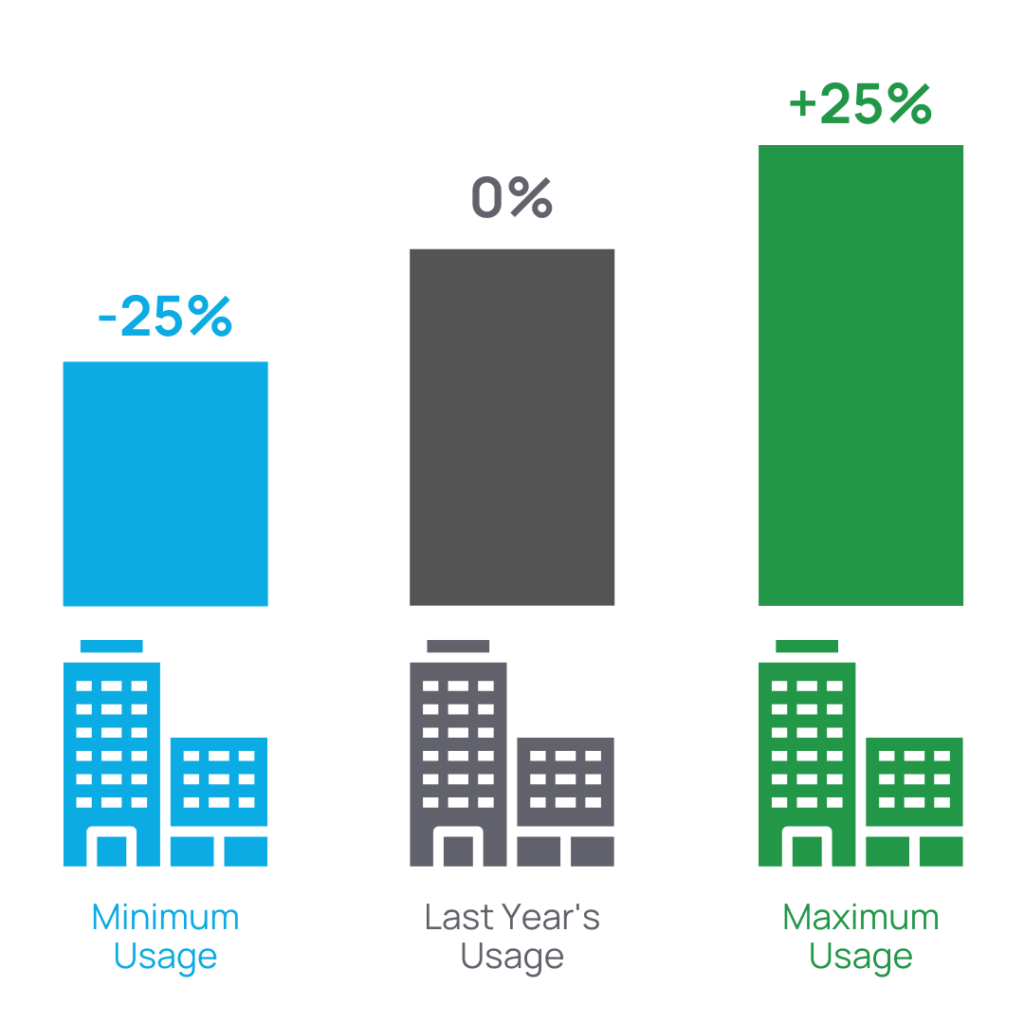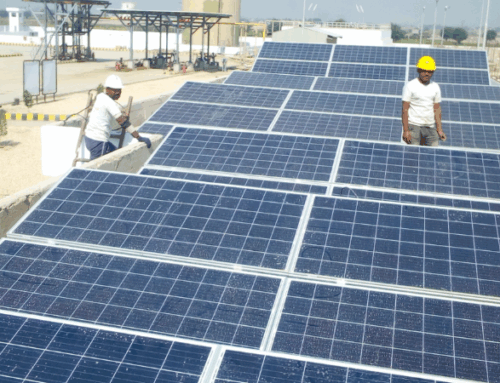What Is A Retail Energy Contract?
Retail energy contracts are legal agreements between retail energy suppliers and end users. These contracts can exist between a supplier and a commercial business, or a residential homeowner, and dictate the terms of the supplier’s service. The contracts are required in all deregulated states by state regulators and are important since they outline the key elements of the agreement.
The Key Components Of An Energy Agreement.
Each retail energy agreement is slightly different, although they all must contain certain key components as mandated by state Public Utility Commissions and Public Service Commissions. The key elements of an energy contract spell out the main details that determine rate, term, and customer accounts that will be serviced.
Price or Rate
All retail energy contracts outline a price for electricity and natural gas and the various cost components included in the price. Fixed-rate contracts are fairly standard and define the components included in the fixed price for energy. Hybrid products, such as block + index, can be more complex.
Contract Term
Each retail energy supply contract has a term length. For fixed-rate contracts, this is very important as the fixed price will remain constant for the contract term. Most contracts have a start date, end date, and language-related to post-term circumstances.
Customer Accounts
All retail energy contracts outline the utility accounts, owned by the customer, which the supplier will serve under the terms of the agreement. These utility accounts are listed in detail with accompanying service addresses so there is no confusion.
Types Of Retail Energy Contracts.
When you sign up for a contract with an energy supplier, you’re committing to buy their energy at a set price for a certain period of time. You’ll usually be able to choose between a fixed rate or variable rate plan, depending on what works best for your household or business. And sometimes, larger customers may enter into hybrid energy contracts.
Fixed-Rate Plans
It’s important to realize that the price per kilowatt hour (kWh) on fixed-rate plans is locked in for the duration of your contract. So if the market price goes up, your rate per kWh stays the same; and if it goes down, your rate stays the same. There are many nuances of a fixed rate plan such as bandwidth, fixed price components, auto-renewal clauses and more. We will detail these below.
Variable-Rate Plans
With variable rates, you pay more when demand is high and less when demand is low. This means that when the market goes up, so does your bill. And, when the market comes down, your bill is also less.
The important thing here is knowing how much energy usage has changed from year to year so that you can calculate energy consumption and know whether or not switching from one type of plan will save money long term!
Hybrid Energy Plans
Certain larger consumers of energy may want to get the best of worlds and elect to blend fixed and variable or index-based energy plans. Many times these customers are spending hundreds of thousands, or millions of dollars on energy and utilize every energy strategy possible to save money. These hybrid plans allow consumers to fixed energy prices during times of market volatility and float energy prices when markets are less likely to spike. This can mean significant savings for a customer, but the terms of the contract must be reviewed in detail.
Since these are not standard energy contract terms, hiring an energy broker to review the details on your behalf could be very beneficial. In fact, naming an energy broker as your exclusive agent through a Letter of Exclusivity (LOE) gives him/her even more leverage when negotiating with energy suppliers on your behalf.
Energy Contract Language
Whether you are a commercial customer or an energy broker advising customers, it is important to understand the details of a fixed-rate energy supply contract and the specific contract language. When you are aware of the nuances of an energy supply agreement, you can better advise your customers and become a more successful energy broker.
Swing Clauses
Most fixed-rate energy supply contracts have a swing, or bandwidth clauses. This section of the contract details how much or how little energy a customer can use and still pay the same fixed price per kWh.
Since retail energy suppliers are pre-purchasing energy to fulfill their fixed-rate obligations, they need to forecast the correct amount of energy to purchase.
Too Little Usage
If a customer uses too little energy over the course of the agreement, then the supplier could be left with excess energy it has already paid for. If the market is lower at that point, the supplier could lose money selling the excess energy back to the market.
Too Much Usage
On the other hand, when a customer uses too much energy over the term of the agreement, then the supplier might not have enough energy to meet its fixed-rate obligations. Remember, the supplier is purchasing a certain amount of energy before the contract starts, at the then-market price. When the customer uses too much, the supplier is forced to purchase the excess usage on the open market. If market prices are higher than the fixed rate on the contract, the supplier could lose money.
The Bottom Line
Suppliers put usage tolerance clauses, also known as bandwidth or swing, in their fixed-rate agreements to protect themselves from these situations. Customers are forced to pay market prices or penalties when they use too much or too little energy. See the chart below detailing how a 25% bandwidth clause might work:

Fixed Components
Another key element of a fixed-rate energy supply contract is to understand what price components are fixed and what price components are subject to change.
Utility Distribution
If you have been selling energy for some time, you already know that energy supply is a separate charge than utility distribution. However, it is important to remember that some of your customers might not be aware of this fact. Explain to them the difference between supply and delivery, and how the fixed-rate components of the supplier agreement only apply to the supply portion of their bill.
Energy
The first and most important component of a fixed-rate is the physical energy commodity. Whether you are entering into a fixed electricity or natural gas agreement, the first element of the fixed rate is the actual energy.
Transmission / Transport / Capacity
Some other critical elements of the electricity or natural gas supply rate are transmission, transport, and capacity. These are the charges to transport natural gas across interstate pipelines, transmit power across national transmission networks, and pay electricity generators for stand-by capacity to meet the demand of customers.
These three components are other major elements of a fixed-rate that should be included in the total price.
Auto-Renewal Clauses
Another key clause to be on the lookout for is the auto-renewal clause. Some suppliers will include an auto-renewal clause, particularly in matrix contracts, that allows them to renew the customer for a specific term, or at a specific price.
Auto-renewals can become a nightmare if the customer, or broker, is unaware of the clause. When the customer attempts to sign up with a different supplier at the end of the contract, the original supplier can charge an Early Termination Fee for leaving the contract.
Many customers and brokers are dumbfounded at this point thinking that the contract expired. They come to learn that the customer is now on a new contract due to the auto-renewal contract language.
Pro Tip: Many retail energy suppliers are willing to eliminate auto-renewal clauses for the right broker partners. As a customer, it is important to align yourself with a reputable energy broker who can help you negotiate favorable contract terms.
Rescission Periods
Another section of your energy contract to review is the allowed rescission period. Depending on your state jurisdiction and customer type, you may be entitled to a contract rescission period of several business days after you execute a new energy contract. Rescinding a contract means canceling it without any penalty or recourse. This could be beneficial if market prices suddenly drop one or two days after you sign a contract.
Early Termination Fees
One thing to always take note of is any early termination penalties or cancellation fees for ending your energy contract before it’s set to expire. Many times, commercial contracts contain hefty penalties for early termination and can be financially detrimental to your business. It’s always best to be aware of the termination clauses in your agreement before signing. Unfortunately, you might not be able to get away from committing to a cancellation fee; however, it’s better to know what you could be potentially facing if you decide to cancel your contract.
Other Fees
Make sure you read the full details about what’s included in your energy price. Sometimes, energy suppliers try to sneak in other hidden fees or charges into your agreement. This is notorious in the residential markets where suppliers offer low fixed rates, but then charge monthly management fees on top of the rate.
Material Changes
It’s critical that you understand the terms and conditions of any material changes during the term of your contract. A material change clause in an energy contract could be exercised if the customer’s usage increases or decreases drastically due to changes in the business, outside of normal operations. For example, you should understand what’s covered in your contract should you increase your energy usage by 30% by adding an addition to your facility. Or vice versa, what happens if you close a portion of your building and reduce energy consumption?
Some material change clauses allow suppliers to charge penalties, higher rates, or even terminate contracts if your usage varies too much. It’s best to calculate your business energy consumption prior to signing a contract, so that you have a record of your baseline usage.
Natural Gas: Burner Tip vs. City Gate Rates
If you are signing a natural gas contract in a deregulated natural gas market, then it’s critical to know if your rate includes delivery to the city gate or to the burner tip. The city gate is the delivery location in your region of the pipeline. If your contract is priced at the city gate, then you might incur additional charges to deliver the gas to your facility.
The burner tip, on the other hand, is gas that is delivered directly to your facility. If you are looking to gain an understanding of your true natural gas rate, then it is best to ensure that your natural gas contract includes the price of burner tip delivery.
Electricity: True Fixed vs. Fixed With Potential Adjustments
When it comes to reading the terms of your fixed electricity supply contract, it’s important to know whether your fixed rate is truly fixed for the term of the agreement, or if the supplier reserves the right to adjust it based on certain market factors.
In the past, fixed meant fixed and retail energy suppliers would not change a fixed rate for the term of a contract. However, in more recent years due to uncertainty in energy capacity prices and energy transmission costs, many suppliers added clauses to their fixed agreements that allow them to adjust fixed rates to cover any increase in capacity or transmission costs. If you sign one of these contracts, you might be surprised to learn that your rate could change.
In response, some electric suppliers are now offering “super fixed”, “traditional fixed”, or “true fixed” products that do not contain these price adjustment clauses and will not change for the duration of the agreement. It’s best to ask your energy broker whether or not your contract contains this clause.
Hiring An Energy Broker
To successfully navigate the world of retail energy contract terms, it’s always best to have an experienced energy broker in your corner. Not only do energy brokers have relationships with the largest energy suppliers in the country, but they also understand the intricacies of energy contracts. They can help you to avoid energy scams, negotiate more favorable terms, and even represent you in disputes with energy suppliers.
Furthermore, an energy brokerage firm can help you with the administrative elements of switching energy suppliers. They will help to manage your transition away from the utility company or between suppliers, and can even help you to transfer your energy contract when moving business premises.
In summary, hiring an energy broker can prove to be well worth it for your business in the long run.
Need Help Negotiating Your Energy Contract Terms?
Whether you are a customer looking for help negotiating better contract terms, or a broker looking for better sales support, we can help!
As one of the nation’s leading energy brokerage firms, we help our customers find the best energy supply contracts that are right for their individual usage profiles. In addition, we have a team of energy industry experts to support the sales efforts of our partners.



